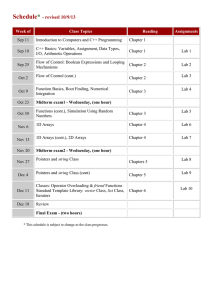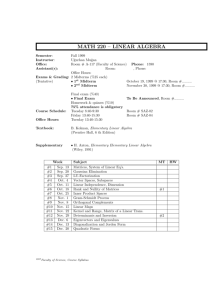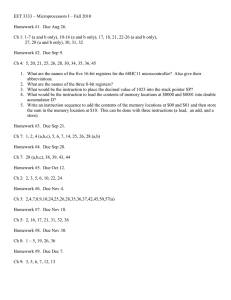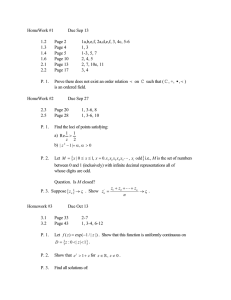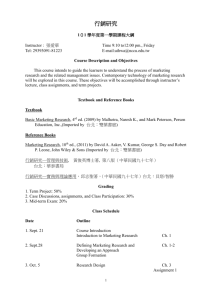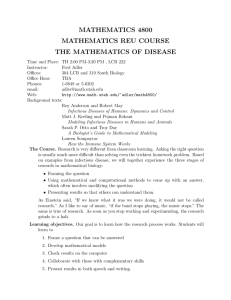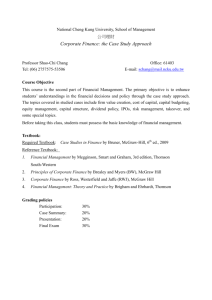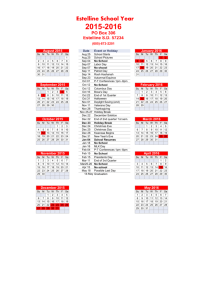MATH 103 - Survey of Mathematical Thought
advertisement
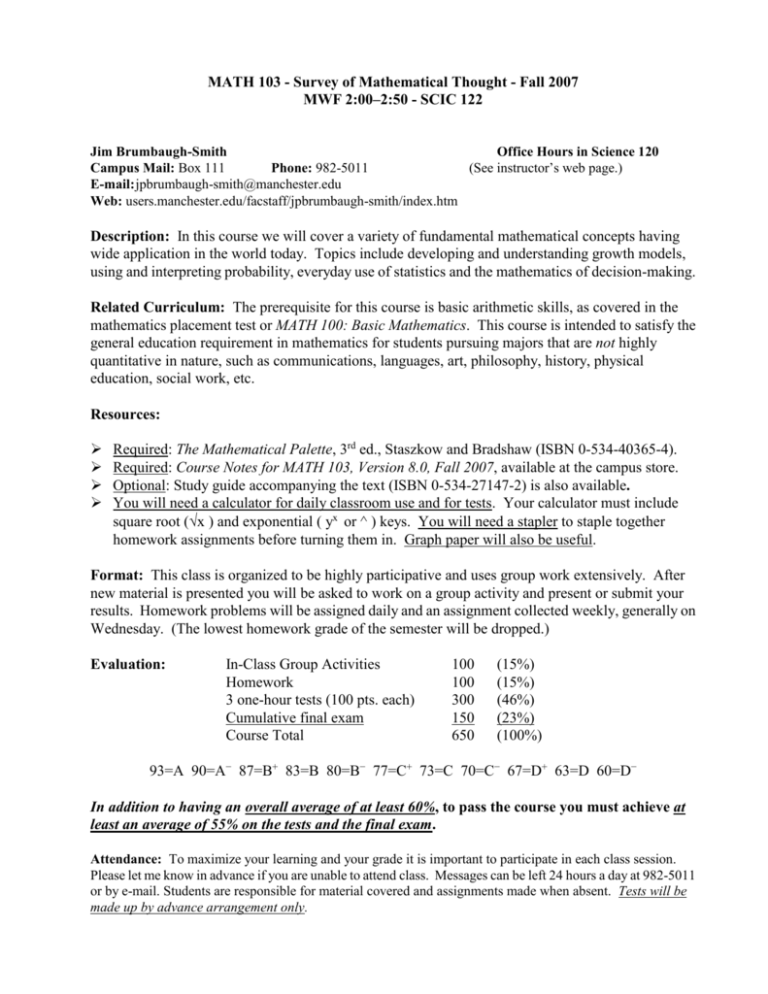
MATH 103 - Survey of Mathematical Thought - Fall 2007 MWF 2:00–2:50 - SCIC 122 Jim Brumbaugh-Smith Office Hours in Science 120 Campus Mail: Box 111 Phone: 982-5011 (See instructor’s web page.) E-mail: jpbrumbaugh-smith@manchester.edu Web: users.manchester.edu/facstaff/jpbrumbaugh-smith/index.htm Description: In this course we will cover a variety of fundamental mathematical concepts having wide application in the world today. Topics include developing and understanding growth models, using and interpreting probability, everyday use of statistics and the mathematics of decision-making. Related Curriculum: The prerequisite for this course is basic arithmetic skills, as covered in the mathematics placement test or MATH 100: Basic Mathematics. This course is intended to satisfy the general education requirement in mathematics for students pursuing majors that are not highly quantitative in nature, such as communications, languages, art, philosophy, history, physical education, social work, etc. Resources: Required: The Mathematical Palette, 3rd ed., Staszkow and Bradshaw (ISBN 0-534-40365-4). Required: Course Notes for MATH 103, Version 8.0, Fall 2007, available at the campus store. Optional: Study guide accompanying the text (ISBN 0-534-27147-2) is also available. You will need a calculator for daily classroom use and for tests. Your calculator must include square root (x ) and exponential ( yx or ^ ) keys. You will need a stapler to staple together homework assignments before turning them in. Graph paper will also be useful. Format: This class is organized to be highly participative and uses group work extensively. After new material is presented you will be asked to work on a group activity and present or submit your results. Homework problems will be assigned daily and an assignment collected weekly, generally on Wednesday. (The lowest homework grade of the semester will be dropped.) Evaluation: In-Class Group Activities Homework 3 one-hour tests (100 pts. each) Cumulative final exam Course Total 100 100 300 150 650 (15%) (15%) (46%) (23%) (100%) 93=A 90=A− 87=B+ 83=B 80=B− 77=C+ 73=C 70=C− 67=D+ 63=D 60=D− In addition to having an overall average of at least 60%, to pass the course you must achieve at least an average of 55% on the tests and the final exam. Attendance: To maximize your learning and your grade it is important to participate in each class session. Please let me know in advance if you are unable to attend class. Messages can be left 24 hours a day at 982-5011 or by e-mail. Students are responsible for material covered and assignments made when absent. Tests will be made up by advance arrangement only. Approximate Schedule: Dates Aug 29 Topic Text Sections _ Introduction, Basic Skills Quiz _____________________________________________________________________________ Aug 31–Sep 24 Unit 1: Growth Models (10 sessions) Sep 19 (W) Camp Mack Day Sep 26 (W) TEST #1 6.1, 9.1, 9.3, 6.3 _____________________________________________________________________________ Sep 28 – Oct 24 Unit 2: Probability and Counting (11) Oct 18 & 19 (R/F) Fall Break Oct 26 (F) TEST #2 4.1, 4.3, 3.4, 4.2, 4.6 _____________________________________________________________________________ Oct 29 – Nov 18 Unit 3: Working With Data (9) Nov 1 (R) Last Day to Drop a Course or Convert to P/NP Nov 19 (M) TEST #3 Nov 21–23 (W–F) Thanksgiving Break 5.1–5.5 _____________________________________________________________________________ Nov 26 – Dec 5 Unit 4: Decision-Making (5) Dec 7 Final Exam Review Week of Dec 10 CUMULATIVE FINAL EXAM Course Notes & 10.4 _____________________________________________________________________________

